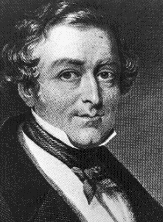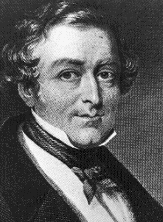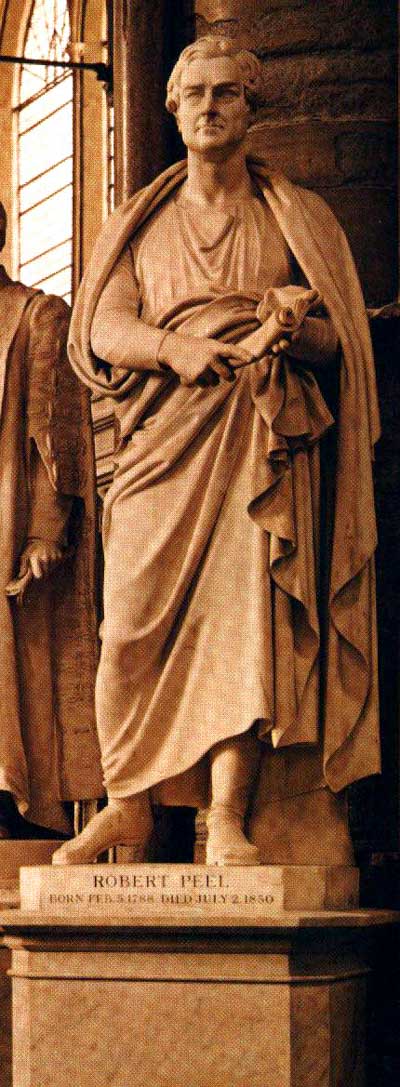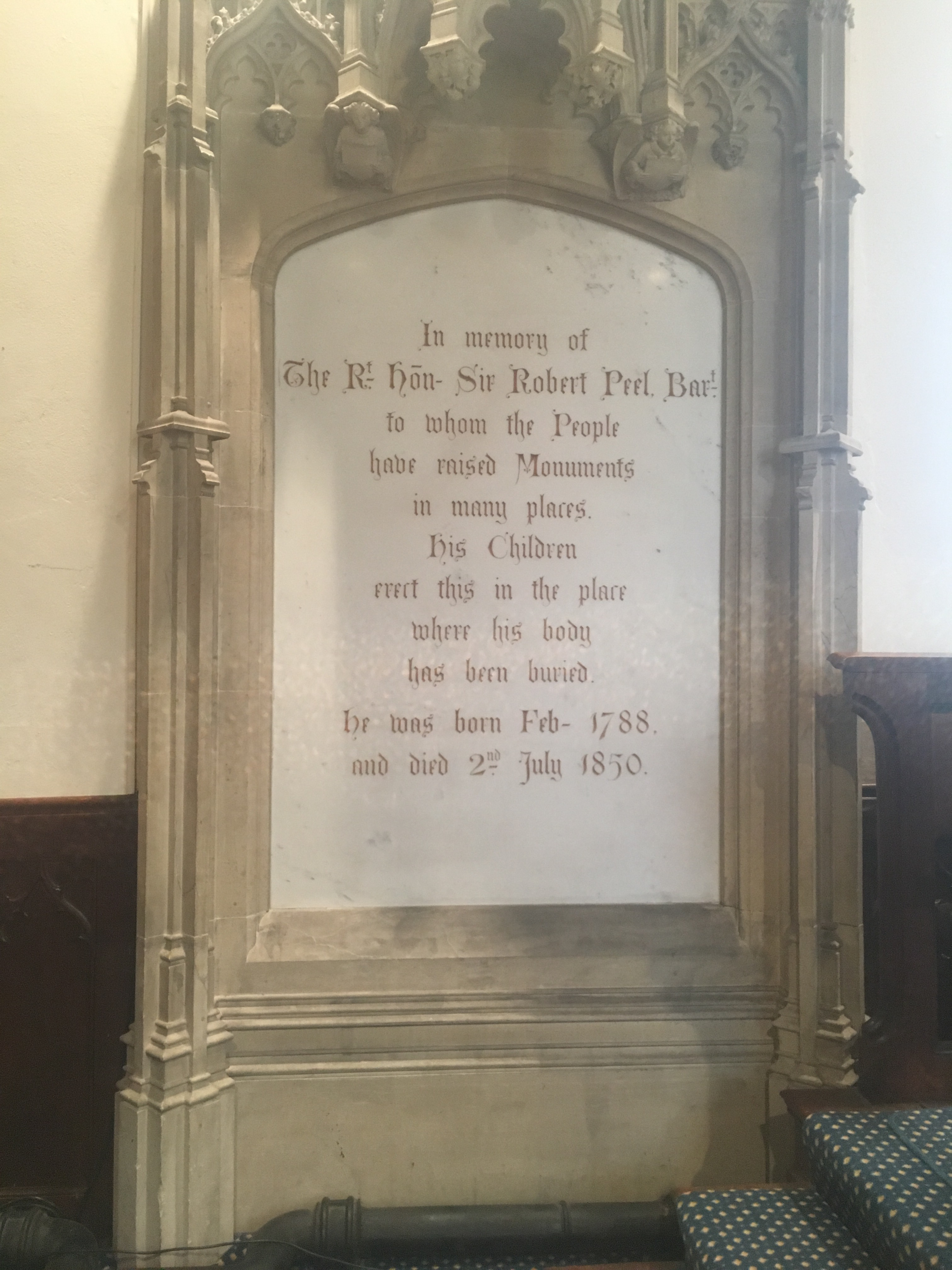Prime Minister of the United Kingdom. He served as a 19th century British politician in several positions, including twice as Prime Minister. Born at Chamber Hall, Bury, Lancashire, the eldest son and third child of 11 born to cotton miller Robert Peel and his wife Ellen Yates. Family wealth allowed him to attend Harrow and Oxford, and he entered Lincoln's Inn in 1809 and began study towards a career in law. His father, however, bought him the parliamentary seat of Cashel in County Tipperary, launching his son's political career. Less than a year later, in June of 1810 he was appointed as Under-Secretary for War and the Colonies in Spencer Perceval's ministry. With the government reforming after Perceval's assassination in May of 1812, Peel was appointed as Chief Secretary for Ireland and served until 1818. He also became a Privy Counsellor. In 1819 Peel became chairman of the Parliamentary Committee of Enquiry into the return to the gold standard. He married Julia Floyd in 1820 and the couple had seven children. In 1822 he accepted the position of Home Secretary. From that post, he began an overhaul of the kingdom's criminal legislation; between 1822 and 1827, he repealed more than 250 statutes, which he thought outdated, and proposed a House of Commons Select Committee to investigate the policing of London. He left office in March of 1827 when Lord Liverpool resigned and remained sidelined until the Duke of Wellington became Prime Minister in January of 1828. Peel then returned to the post of Home Secretary and also became Leader of the House of Commons. In February of 1828, Peel proposed a Committee of Enquiry into the state of the police and the increase in crime in London. The committee recommended establishing a police force for London under the control of the Home Secretary. The following year the Metropolitan Police Act was passed. In May of 1830 Peel inherited a baronetcy on the death of his father, and in 1834 became Prime Minister in a minority Conservative government and Chancellor of the Exchequer. He resigned as PM the following year. In 1841, Peel again formed a Conservative government as Prime Minister. His government enacted a number of economic reforms. Peel gained a hard-won repeal, the Corn Laws, which he introduced with the need for more food for Ireland where a potato famine had taken hold. Peel's own party did not support him, but with support from the Whigs and the Radicals, he managed to pass the legislation through, but he had outraged many fellow Tories, split the party, and was forced to resign. He did not hold public office again. In June of 1850 while out riding on Constitution Hill, he was thrown from his horse which then stumbled, falling on top of him. Peel died from injuries sustained three days later.
Prime Minister of the United Kingdom. He served as a 19th century British politician in several positions, including twice as Prime Minister. Born at Chamber Hall, Bury, Lancashire, the eldest son and third child of 11 born to cotton miller Robert Peel and his wife Ellen Yates. Family wealth allowed him to attend Harrow and Oxford, and he entered Lincoln's Inn in 1809 and began study towards a career in law. His father, however, bought him the parliamentary seat of Cashel in County Tipperary, launching his son's political career. Less than a year later, in June of 1810 he was appointed as Under-Secretary for War and the Colonies in Spencer Perceval's ministry. With the government reforming after Perceval's assassination in May of 1812, Peel was appointed as Chief Secretary for Ireland and served until 1818. He also became a Privy Counsellor. In 1819 Peel became chairman of the Parliamentary Committee of Enquiry into the return to the gold standard. He married Julia Floyd in 1820 and the couple had seven children. In 1822 he accepted the position of Home Secretary. From that post, he began an overhaul of the kingdom's criminal legislation; between 1822 and 1827, he repealed more than 250 statutes, which he thought outdated, and proposed a House of Commons Select Committee to investigate the policing of London. He left office in March of 1827 when Lord Liverpool resigned and remained sidelined until the Duke of Wellington became Prime Minister in January of 1828. Peel then returned to the post of Home Secretary and also became Leader of the House of Commons. In February of 1828, Peel proposed a Committee of Enquiry into the state of the police and the increase in crime in London. The committee recommended establishing a police force for London under the control of the Home Secretary. The following year the Metropolitan Police Act was passed. In May of 1830 Peel inherited a baronetcy on the death of his father, and in 1834 became Prime Minister in a minority Conservative government and Chancellor of the Exchequer. He resigned as PM the following year. In 1841, Peel again formed a Conservative government as Prime Minister. His government enacted a number of economic reforms. Peel gained a hard-won repeal, the Corn Laws, which he introduced with the need for more food for Ireland where a potato famine had taken hold. Peel's own party did not support him, but with support from the Whigs and the Radicals, he managed to pass the legislation through, but he had outraged many fellow Tories, split the party, and was forced to resign. He did not hold public office again. In June of 1850 while out riding on Constitution Hill, he was thrown from his horse which then stumbled, falling on top of him. Peel died from injuries sustained three days later.
Bio by: Iola
Inscription
In Memory of
The Rt Hon Sir Robert Peel, Bart.
to whome the People
have raised Monuments
in many places.
His Children
erect this in the place
where his body
has been buried
Family Members
Advertisement
See more Peel memorials in:
Records on Ancestry
Sponsored by Ancestry
Advertisement
















